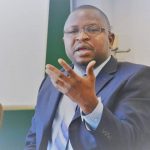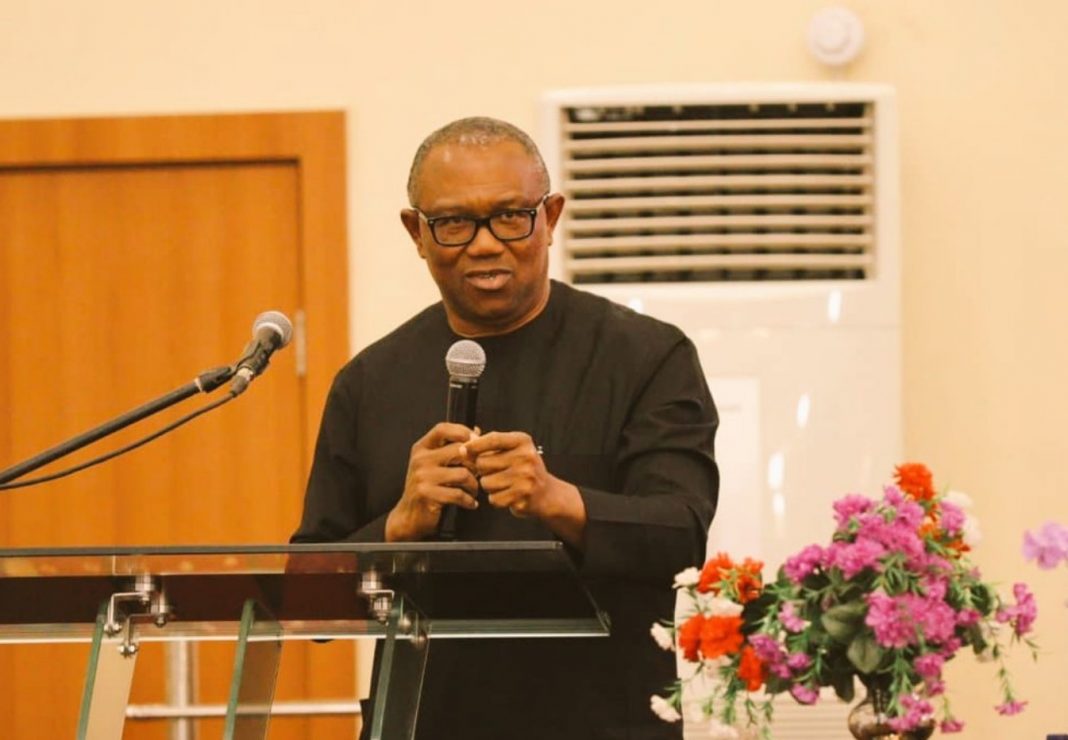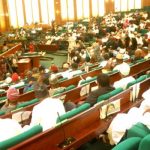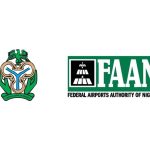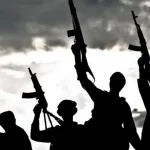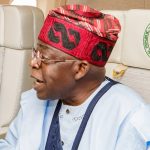Everyone agrees that this is by far the most difficult Nigerian election to predict since at least 1999. In the absence of any definitive augury for forecasting who will win today’s election, most people are deploying the resources of vulgar empiricist data, conjectures, hints from the past, the voices of the loud majority, and enduring socio-historical variables to make guesstimates.
However much some people might want to hide behind their fingers and deny this, the truth is that religious and ethnic considerations are more salient factors in this election than they have been in any election since 1999.
The exclusion of Christians from the top of the tickets of the major political parties (and, to make it even worse, the appearance of two Muslims ticket of the ruling APC) in an election year in which the overriding mood is that a (Christian) Southerner should succeed Muhammadu Buhari is the single most important reason for the changing dynamics in this year’s presidential election.
If the predominant chatter in the Nigerian public sphere (which is admittedly unreliable) is accurate, my prediction is that Peter Obi will win a marginal plurality of the votes cast today but will fall short of the constitutional geographic spread required to be declared the winner, which would necessitate a runoff whose outcome would be as unpredictable as the first round. Here’s my reason for saying this.
The broad coalescence of southern and Christian sentiments that I’ve sensed on social media and in conversations with multiple people clearly indicates that most Christians and southerners outside the Southwest (but I’m reluctant to discount the emergent militantly political Christian nationalism that seems to have taken firm roots in Yoruba land) will vote for Peter Obi. That means, at least in theory, he will dominate one half of the voting population.
APC’s Bola Ahmed Tinubu and PDP’s Atiku Abubakar will divvy up the Muslim vote more or less equally. NNPP’s Rabiu Musa Kwankwaso is projected to dominate the votes-rich Kano State where he seems wildly popular. It’s still anyone’s guess whom between Tinubu and Atiku will win the majority or plurality of the Muslim vote.
Tinubu initially seemed to have had a lock on most of the northern Muslim vote through the instrumentality of the traditional Northern Nigerian Muslim clerical establishment. Then Tinubu’s self-inflicted Quranic recitational misadventures caused a reassessment of his Muslim bona fides and a shrinking of his support. Atiku gained from that.
But in the last few days, Tinubu seems to have bounced back powerfully with parts of the Muslim clerical establishment that had abandoned him. Multiple people have told me that in the past few days many Imams have preached in mosques that Muslims should go out and vote for Tinubu and Shettima to show the world that Muslims enjoy an undisputed numerical dominion in Nigeria, which is basically the Muslim version of what Obi-supporting pastors have been saying in church sermons in the past few weeks. (One Reverend Father threatened to physically assault any church member who didn’t vote for Obi!)
Interestingly, the quiet, renewed rise of Tinubu in the Hausaphone Muslim North is coextensive with the emergence of a vicious and relentless sharing of religiously damaging information about Atiku, which paints him as someone who will hurt Islam, Muslims, and the Fulani people. For example, a November 2022 Vanguard story headlined “I’ll implement CAN’s policy document—Atiku” is being shared wildly and given ominous interpretations in Arewa social media circles. More than 30 different people shared it with me in a single day! Pro-Tinubu Muslim clerics are publicizing it and using it as a basis to question Atiku’s commitment to Islam.
In much of the Muslim North, the Christian Association of Nigeria (CAN) is synonymous with the vilest evil imaginable. People are socialized to see it as the single greatest threat to Nigerian Muslims and is to Northern Muslims like a red rag to a bull. A Muslim saying he’ll implement CAN’s policy document is seen as signing a pact for the mass annihilation of Muslims.
But the headline is misleading; its content isn’t nearly as menacing as it sounds. I took the trouble to read the actual story and found that all Atiku said was that several of the policy positions that CAN advocated in its document, such as diversifying the economy to move it away from dependence on oil, were consistent with his own policy document and with a book he wrote when he was vice president.
Unfortunately for him, though, CAN’s policy document also includes emotional triggers such as removing ajami (i.e., Hausa words written in improvised Arabic orthography) from the Nigerian currency, which is a touchy subject for most Hausaphone northern Muslims.
The CAN policy document, additionally, recommends constitutionalizing the right to secession from the Nigerian union through a referendum, another emotive subject. It also says, “No to Ruga…. No open grazing,” which many Fulani people interpreted as Fulaniphobic. By saying he agreed with the document even when he obviously hadn’t read all of it, Atiku rendered himself vulnerable to suspicions of being a sellout who would endorse CAN’s symbolic incineration of Muslims should he become president.
I can’t reliably evaluate how much this unfair CAN-inflected whispering campaign against him has percolated into the northern Nigerian public sphere and how much impact it will have on Atiku’s electoral fortune among Northern Muslim voters—or if it will help him regain the sympathies of Northern Christians that he had lost to Peter Obi. What certain, however, is that Tinubu is benefiting from it.
Well, if Obi enjoys a commanding lead in the Christian vote and Tinubu, Atiku, Kwankwaso divide the Muslim vote (which may be a simplistic expectation because human are complex beings who’re animated by different impulses), he’ll win the plurality of the votes but fail to get enough national spread to satisfy the constitutional requirement to be declared the president. Then there’ll be a runoff.
Here’s my prognosis of a possible runoff election—again, using the resources of admittedly imperfect surface impressions. If the run-off pits Peter Obi against Tinubu, all things being equal, Nigeria’s ethno-religious dynamics would favor a Tinubu win. Here’s why.
Given how religiously charged this election has become, Obi would probably improve on his northern Christian votes if Atiku is out of the race in a run-off since Atiku is—or used to be—quite popular with this demographic. But given the historic centrality of ethnicity as the organizing principle of identity mobilization in Yoruba land (Pentecostal Christianity is challenging this, and this election will give us the data on how accurate this notion is), he might lose Yoruba Christian votes.
If you add that to the clean sweep of the Muslim vote Tinubu is expected to have in a two-way contest with Obi, it seems highly likely that Tinubu will come out tops.
However, if the run-off pits Obi against Atiku, I think Obi will be marginally victorious. Obi and his Labour Party are basically extensions of the PDP. I know saying this hurts the sense of self-righteousness of Obi devotees, but Obi was Atiku’s running mate in 2019 and was a PDP presidential aspirant until it became apparent that he wouldn’t win the party’s nomination, which made him to suddenly move to the Labour Party whose ideology is diametrically at variance with his.
In the last eight years, PDP’s base has moved mostly to the South and to the Christian North, and the prevailing sentiment in these voting blocs is that a Christian southerner should succeed Buhari. Conversations I’ve had with Obi-supporting Southern Christians who used to be Atiku supporters indicate to me that they would rather vote for Tinubu (whom they despise by the way) than vote for another northern Muslim—even if the northern Muslim is the religiously liberal and cosmopolitan Atiku.
So, I expect an Obi-Atiku contest to ignite anew a significant proportion of the coalition that gave Obasanjo a second term (after the Muslim North, whose votes propelled him to victory for his first term, soured on him) and that propelled Goodluck Jonathan to victory in 2011 in spite of his loss of the Northern Muslim vote.
That coalition is the Southwest, Southern minorities, the Southeast, Northern Christians, and non-Hausa-speaking Muslim ethnic minorities in the North. Obi is unlikely to win the Muslim ethnic minority vote, but the voter enthusiasm advantage Obi supporters are likely to have over Atiku’s supporters is what might give Obi the marginal edge.
Note that my predictions are based on the assumption that the election will be free and fair, that the technological safeguards INEC has said it has instituted to ensure the integrity of the election will work, and that the variables we see at play now are not deceptive. I am also brushing off the impact that Buhari’s seeming support for Atiku will have on the outcome of the election because I don’t trust the effectiveness of the machinations of a man who couldn’t defeat Tinubu in a mere primary electoral contest.
So, I concede that I may be entirely wrong in my projection. Obi may turn out to be a dismal fizzle. There may be no runoff. Tinubu may win on the first ballot. Or Atiku may be way stronger than I have estimated and could win on the first ballot in spite of my doubts about his chances.
Well, if the election isn’t postponed at the last minute, like all past presidential elections since 2015 were, we will find out tomorrow.
